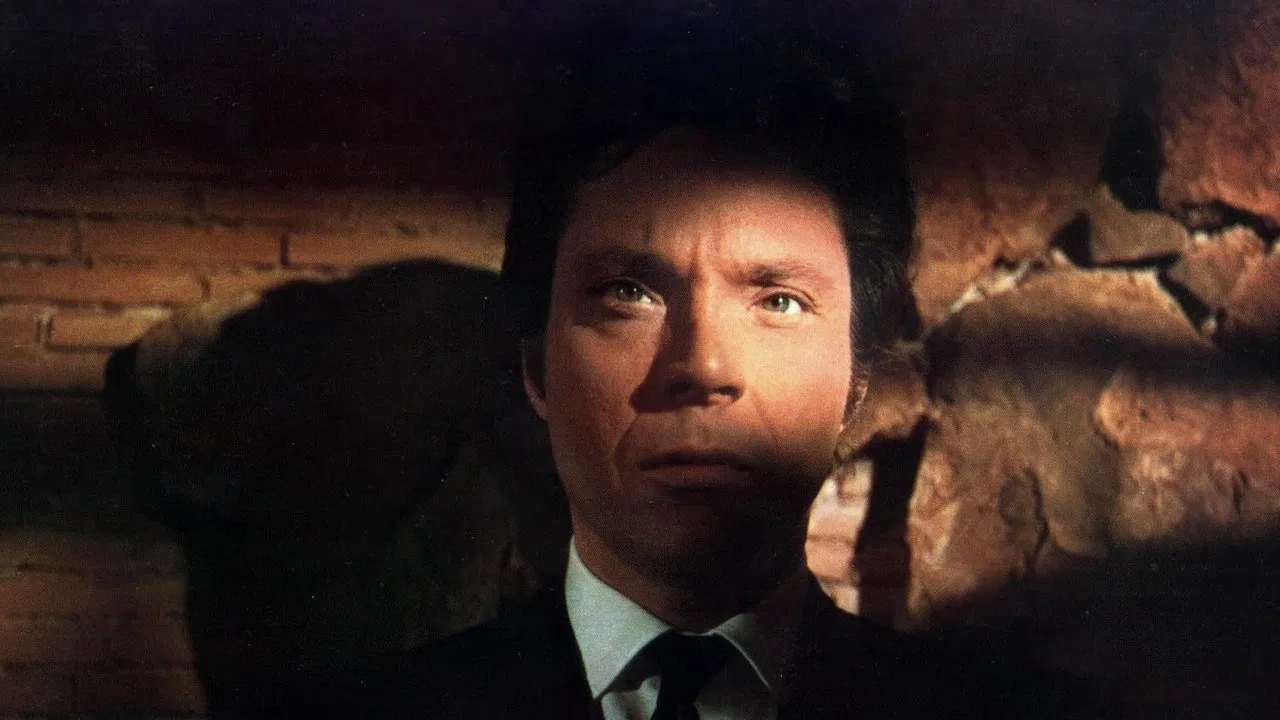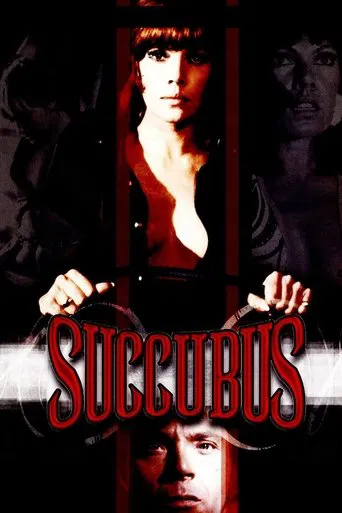Ensofter
Overrated and overhyped
ClassyWas
Excellent, smart action film.
Borgarkeri
A bit overrated, but still an amazing film
Quiet Muffin
This movie tries so hard to be funny, yet it falls flat every time. Just another example of recycled ideas repackaged with women in an attempt to appeal to a certain audience.
Claudio Carvalho
The performer Lorna Green (Janine Reynaud) is a dominatrix in a S&M show in a nightclub and lover of the producer, William Francis Mulligan (Jack Taylor). Lorna attracts the attention of a stranger that believes she is the essence of evil and controls her mind. Lorna has sex with Mulligan and has a weird dream where she stabs a man with a needle in the eye. On the next morning, she is walking with Mulligan and sees a hearse on the road. When she glances at the corpse, she sees the man of her dream and cries. Soon Lorna has other daydreams followed by murders and she starts to blend reality with dreams. Soon she is confused with her nightmares and her memories from a past life when she was a countess. Meanwhile the stranger plots a scheme against Lorna with Mulligan."Necronomicon - Geträumte Sünden", a.k.a., "Succubus", is the first movie of Jess Franco outside Spain because of the censorship in his country. This movie is financed by Germany and produced in West Germany. Considered a cult movie for many viewers, I had a great expectation but I found it boring and with a messy screenplay. My vote is three.Title (Brazil): "Succubus"
ferbs54
Hoo, boy, I don't even know where to begin with this one! Jess Franco's "Succubus"--his first of four films in 1967 alone, in a career oeuvre that as of this date contains around 190 (!) pictures--takes a sharp turn from the director's previous pictures, many of which ("The Awful Dr. Orloff," "The Sadistic Baron von Klaus," "Dr. Orloff's Monster" and, especially, "The Diabolical Dr. Z") had been perfectly lucid, imaginatively shot, beautifully photographed B&W minimasterpieces. "Succubus" is a film that is almost impossible to synopsize, much less figure out...even more so than Franco's "Venus in Furs" (1968). The only other films I can compare it to, in my limited experience, as far as surrealism, "trippiness" and the ability to both dazzle and frustrate the viewer are concerned, are Jaromil Jires' "Valerie and Her Week of Wonders" (1970) and perhaps Alejandro Jodorowsky's "El Topo" (1971). But "Succubus" is a much lesser film than those other two, and infinitely more boring and pretentious (capital "P"). The film seems to concern an S&M nightclub performer named Lorna (played, it must be granted, with some authority by model Janine Reynaud) who may or may not be a hell-sent succubus or perhaps merely a psychotic serial killer. Or perhaps Lorna is only dreaming. Or fantasizing. Really, it is hard to say for sure, and anyone who speaks with great authority regarding this film is full of hooey, as even Franco himself, during a 22-minute interview on this fine-looking Blue Underground DVD, admits to not understanding his own movie! He excuses this, though, by remarking that Jean-Luc Godard once told him that a picture does not have to be understood to be successful. Oy gevalt. Making matters worse is the fact that Reynaud herself is a completely unsympathetic/unattractive performer, although still kinda sexy (perhaps future Franco muse Soledad Miranda would have worked better here). Among the assorted bits of strangeness that the film dishes out are some weird word-association games, a pianist playing his instrument while looking at a math book, an LSD party, some very mild lesbianism in a room full of mannequins, and the fact that the picture seems to have been edited with an eggbeater. On the plus side: some dreamlike soft-focus photography, pretty scenery of Portugal and Berlin, and some strikingly beautiful images, such as lovers viewed through a fish tank (but signifying what?). Equal parts tedious and fascinating, the film was slapped with an "X" rating in the U.S. back in '69 ("X" for "Excruciating"? "Exhausting"? "Extremely hard to follow"?), its trailer proclaiming "The most unusual picture of the year...perhaps, of years to come." In a picture filled with so much ambiguity, that statement, at least, is decidedly true. Get some ergot-based derivative inside you and see for yourself!
tedg
I am a Jess Franco fan. I like the way his intuitions work. He just starts: the story is made up as he goes which imparts a sort of random cosmology behind what we see. But the thing that makes it work for me are his cinematic intuitions. There isn't any artifice or guile, no film school magic. He just takes the camera where he thinks his eye would go before it occurs to the narrative self go there.So even though the stories are cheap, and the images often pornographic, it has a cinematic integrity to it that cannot be denied.But not so here, in his most "professional" movie. Oh, the story is random enough, and has his trademarks: minds controlling other minds, performances within the film, adoption of older film references, movement in life as movement through sex. But the camera is controlled by someone without the vision he is known for.And the actress, though duly redheaded, is two hard decades too old, and twelve disappointments too severe.You should pass on this one.Ted's Evaluation -- 1 of 3: You can find something better to do with this part of your life.
MARIO GAUCI
This was an early color film for Franco but he seems to have mastered the new process with relatively little problems, here utilizing a decidedly Bava-esque palette (the famous scene with the mannequins, for instance). SUCCUBUS is considered a transitional film for Franco because, from here on in, the emphasis on eroticism will become much more pronounced until it almost turns into pornography sometime during the next decade. I haven't watched any films from the latter category but this film certainly pushes the issue as far as it was permissible at the time! Here, too, because of its dream-like nature (as was also to prove the case later with A VIRGIN AMONG THE LIVING DEAD [1971]) the film's narrative lapses and general 'incoherence' are easier to accept than in, say, EUGENIE DE SADE (1970) where one does not really expect to find such liberties – though I am beginning to realize that, with Franco, virtually anything goes!Even though he does not receive credit for writing the screenplay, it is hard to imagine that Franco had no hand in its actual conception, as the themes the film explores are certainly in keeping with the rest of his oeuvre (right from the very first scene, the sleazy nightclub act, which reappears over and over in his films). While the plot is not easy to follow (it actually pays to read about it beforehand, because otherwise it would be practically impossible to make head or tails of anything!), it copiously references noted figures from the various arts – paintings, literature, cinema, music – which apparently pre-occupied Franco during this period. Unfortunately, most of it is probably beyond the reach of most audiences (myself included) but I must say that I was very pleased to learn that Franco, through a line spoken in the film by Janine Reynaud, held Bunuel, Lang and Godard as the epitome of cinema – three film-makers whose work is unmistakably linked (Bunuel chose film as his creative métier after watching Lang's DESTINY [1921]; Lang appears as himself in Godard's CONTEMPT [1963]) and all of whom clearly influenced Franco in the initial phases of his career. In particular, there is a brief repeated scene where Michel Lemoine, looking straight at the camera, describes Reynaud as 'a devil on earth' which reminded me of a similar 'gimmick' used by Bunuel in THE EXTERMINATING ANGEL (1962).The film has some very striking imagery (not least of all, the two S&M scenes that were pretty much taboo at this point) with the soft-focus and often sensual dream sequences being particular highlights; another key scene finds Reynaud and Jack Taylor going up to her castle and he recounts the tale of Faustine, a Succubus, to her. But, even in this shortened version of the film, one still has to contend with banal passages like the drugged costume party sequence and other moments where the pace drops. Also, I have a quibble regarding the film's latter stages: why did Jack Taylor all of a sudden want to do away with the Janine Reynaud character (the irony of his unconsciously 'hiring' the Devil himself to do this is interesting but it remains frustratingly unexplained).The music, as is customary for a Franco film, provides the perfect counterpoint to the onslaught of visual and narrative ideas; special care is also taken with the sound effects which are meant to illustrate Janine Reynaud's disorientation (and, with her, the viewer's). The casting of the main roles is appropriate as well: Reynaud may not rank among Franco's loveliest leading ladies but it is arguable whether anyone could have essayed the part with more conviction and, in any case, her sensual body is certainly utilized to the hilt throughout; Jack Taylor is commanding enough as her shady manager/lover; Michel Lemoine makes for a mysterious and sinister Mephistophelean figure; Howard Vernon's brief appearance is a natural, and typically professional.Obviously, I would love to see the original full-length German-language version of the film released as a SE DVD, but one wonders whether that will ever come to pass. At least, my VHS copy was a one-up on the now-OOP R1 Anchor Bay DVD, as the film was presented in its correct (I assume) widescreen ratio! The film's silly pan-and-scan theatrical trailer (for the U.S. version) was also included.

